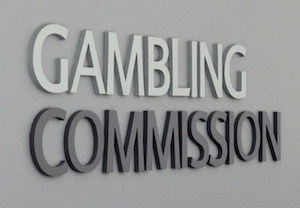The UK Gambling Commission is ramping up efforts to better understand and tackle the illegal market, with a detailed report to be published in late spring next year.

The qualitative phase of the report, including the use of data analytics to identify illegal operators and free up more resources to tackle offshore brands, has been completed.
Writing in a blog post for the Commission, chief executive Andrew Rhodes said it is important that the regulator develops and builds up its own capacity for tackling the illegal market, alongside working with other regulators and agencies.
The Gambling Commission is using its Consumer Voice programme to “better understand the pathways” into the unlicensed market, Rhodes said, as well as exploring the experiences of consumers who are not aware they are playing with unlicensed operators.
“One outcome of this research is to get a better understanding of the right questions we can use in consumer research to supplement our other data sources and include these in the Gambling Survey for Great Britain (GSGB) to allow improved monitoring over time,” Rhodes said.
The Commission plans to add “additional search themes” to its methodology that reflect consumer motivations not captured within its phase one model.
It also wants to “incorporate questions on the GSGB to better understand the behaviour of consumers who use these unlicensed sites that will help to address the assumptions made in the gross gambling yield (GGY) estimate.”
By late spring next year, the Commission said it will have pulled together 12 months of data and will have a better view of the unlicensed market.
As for the Gambling Commission’s other work around the illegal market, Rhodes said a new cease-and-desist process will be introduced to target the “growing trend” of prize draws and competitions.
Rhodes said such offerings have “raised concerns” with HM Revenue and Customs, the UK government’s Department for Culture, Media and Sport – which oversees gambling – and the National Crime Agency.
“A key development in the plan involves expanding the partnerships with search engines,” Rhodes added.
“Beyond the existing collaboration with Google through the government portal, the Commission has now established a working relationship with Microsoft.
“This partnership will replicate the successful referral process with Google, extending it to include Bing, Yahoo Finance and other Microsoft-powered search engines within Great Britain by October 2024.”
“Additional efforts will include test purchasing activities and ongoing contact with payment providers to detect and prevent illegal transactions.
“The Commission will also continue to engage with external partners, such as law enforcement agencies, the Police Intellectual Property Crime Unit and HMRC, to strengthen its efforts.
“I would like to thank the operators, other regulators and stakeholders who have helped us in this work to date. I would also reiterate the call set out in the paper, for those with access to other useful data to get in touch and discuss their ideas on how it could be used or benefit from data sources not currently open to the Commission.”

